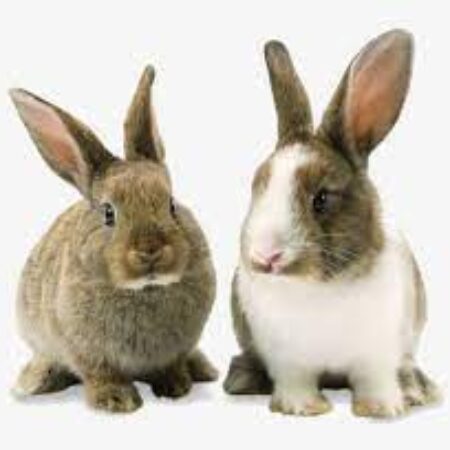About three weeks ago we checked the hutch of our female rabbit and found some new arrivals there. Eight little rabbits had arrived. And this time they thrived. The female rabbit had already given birth earlier to some young some weeks earlier, but that being her first litter the little rabbits had not survived. This time round the motherly instinct has worked better and the little rabbits have grown. Our children assured us that they had not put the male and female rabbits together again, but at some point they must have been in contact. The little rabbits normally huddle in colour-coded groups: dark grey on one side, white-grey on the other. The children, of course, are excited that this happened and eager for the little rabbits to grow a little bit, so that they can play with them. The rabbits already are starting to run around a bit and to explore the world.
Those rabbits are really very cute and I can still remember all the fun we’ve had with little rabbits during my childhood. Of course at the same time we do have a rabbit crisis in parts of Otago, where rabbits destroy significant parts of the land. But just because some rabbits are doing damage in one area doesn’t mean that we can’t enjoy them at home.
I have just read some “speculation” by C. S. Lewis about the role of animals. He wrote that some may regard “the taming of an animal by a man as a purely arbitrary interference of one species with another. The ‘real’ or ‘natural’ animal to them is the wild one, and the tame animal is an artificial or unnatural thing. But a Christian must not think so. Man was appointed by God to have dominion over the beasts, and everything a man does to an animal is either a lawful exercise, or a sacrilegious abuse, of an authority by divine right. The tame animal is therefore, in the deepest sense, the only ‘natural’ animal—the only one we see occupying the place it was made to occupy, and it is on the tame animal that we must base all our doctrine of beasts” That is an important consideration. On the other hand we read in the Bible that God rejoices in wild animals, in those that are beyond the control of humans. I think that we have to care for both. That also means, for example, that if we do have domestic animals we need to ensure that they do not destroy the wild. As the son of lizard conservationist I do know how destructive cats can be for lizards. It is also in our interaction with animals that we can show our gratefulness and our sense of responsibility.
Blessings, Tim

